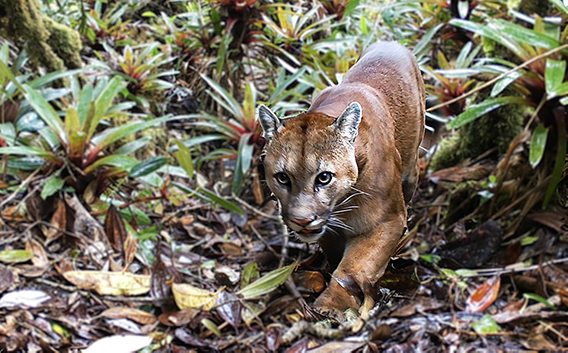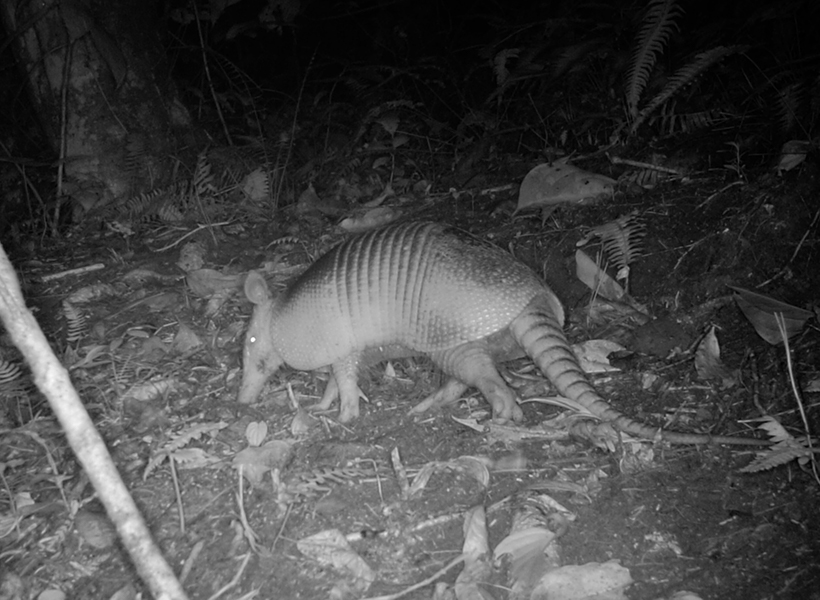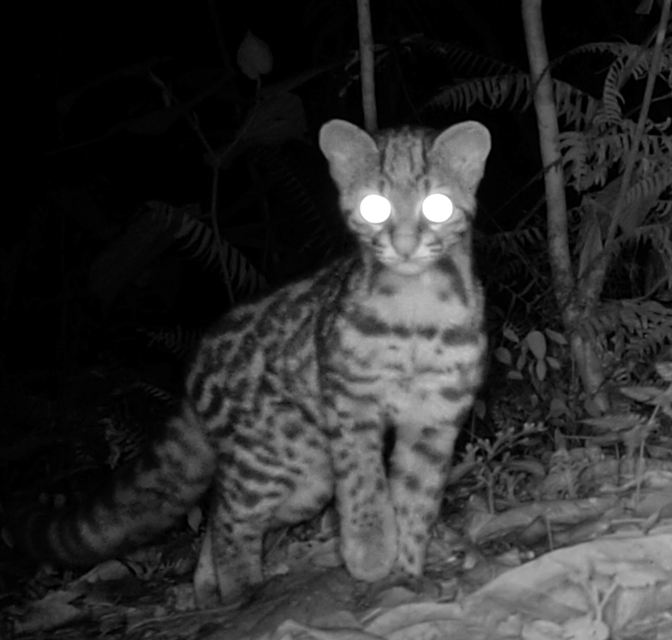Oncilla (Leopardus pardalis)
Private nature reserves can play an important role in increasing the total area devoted to biodiversity conservation and can be more effective in terms of conservation than a state-protected area, which is why conservation efforts through such reserves are a growing initiative worldwide.
For this reason, the creation of the Madhú reserve would not only contribute to increasing the number of protected areas in the region, but would also conserve part of one of the richest and most endemic ecosystems. This is why the Madhú Reserve can play an important conservation role in a region of great interest and priority in the country, such as the Andean forests.
Mammals are one of the best known and most studied groups of vertebrates in the world, including the most widely distributed animals on the planet, and it is also remarkable the great diversity of species and the high heterogeneity among them, not only in anatomy, but also in their biology, ecology and behavior; differences that are noted both at the level of orders and families, as well as genus and species.
Colombia is the fourth country with the highest diversity of mammal species in the Americas,
The latest list of Colombian mammals records 518 species, of which 52 are endemic, and 54 species are threatened with extinction.

Medium and large mammals are an ecologically important group for the balance of ecosystems. Large mammals play the role of predators and are perfect top consumers, thus regulating the functioning and dynamics of ecosystems by influencing prey populations (mostly herbivores) and, therefore, indirectly altering the abundance, composition, succession, dispersal and diversity of plants. And medium-sized mammals, although they have less impact on communities, are more diverse in their behavior, ecology and are more abundant than large mammals, can cause redistributions in prey and occupy unique roles that cannot be replaced by larger carnivores, such as when they are seed dispersers or controllers of seed-dispersing species. The reduction or loss of these key groups can lead to changes in the regime of food chains, thus altering the state of ecosystems and possibly losing part of their ecosystem services.
METHODOLOGY
Sampling sites
The Madhú Reserve is located in the municipality of Cerrito, department of Valle del Cauca, south of the Páramo de Los Domínguez.

Photo trapping cameras
In order to obtain information that indicates the presence of medium and large mammals in the study area, automatic movement detection cameras were installed at least one kilometer apart, each camera is counted as a single sampling station, which are located at crossroads, trails, existing roads, salt pans and bodies of water, in order to maximize the probability of detecting the species.

